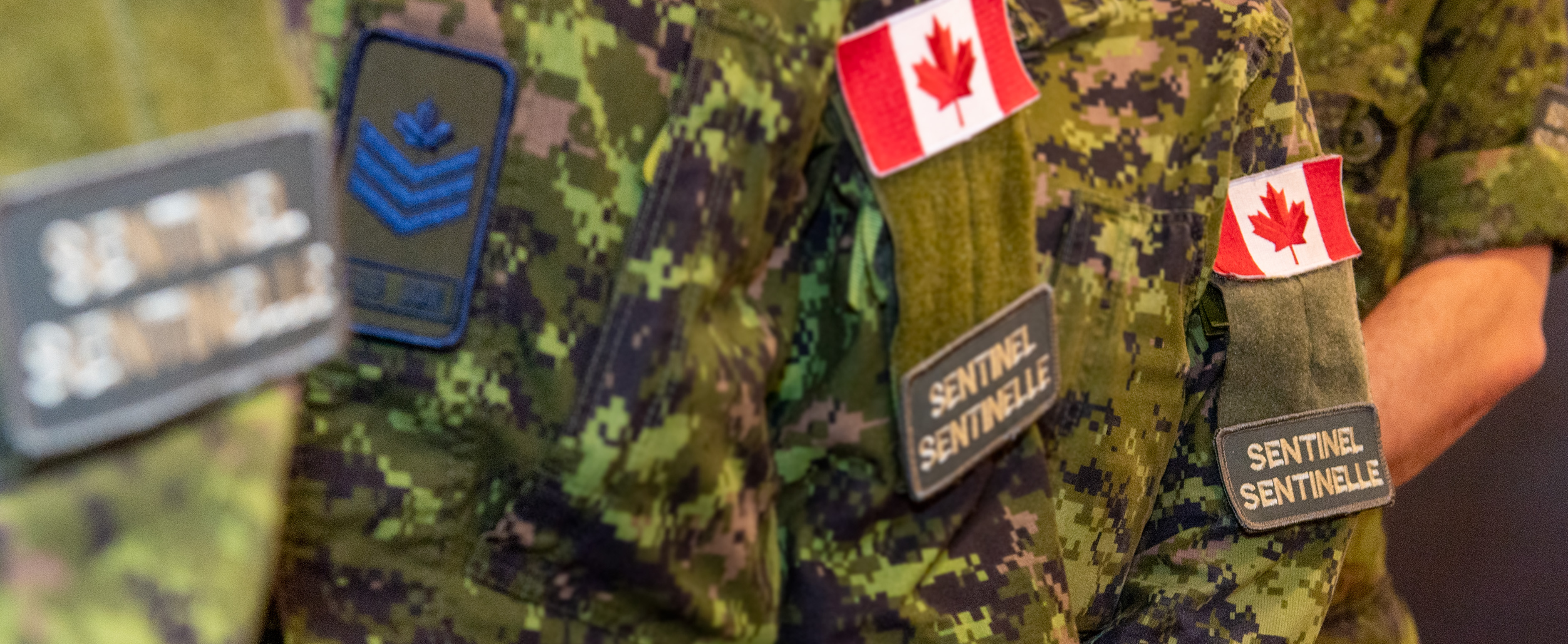Sentinel Program: The 14 Wing Perspective
News Article / September 22, 2020
Click on the photo under “Image Gallery” to enlarge it.
The Royal Canadian Air Force supports the mental and physical wellbeing of its personnel. The Canadian Armed Forces Sentinel Program, with over 3,000 qualified individuals, plays an important role in the prevention, detection, and support for colleagues in distress. Once qualified, members need to take ongoing training each year to maintain their knowledge and discover resources newly available. Civilians may also volunteer with the approval of their local chain of command and local Sentinel Chaplain.
Taking pride in the personnel who have completed training, and to highlight the Sentinel program, we are happy to share the latest from 14 Wing Greenwood.
By Captain Matt Zalot
The Sentinel Program aims to develop a group of trained, supervised non-professionals whose purpose is to improve human contact through a set of behaviours and attitudes they use with their peers. The Sentinel relationship is not a professional one, but a peer relationship; the distinction is important.
At 14 Wing Greenwood, the Sentinel program has been going on for quite some time and the Wing Chaplains have been proactive in promoting and recruiting, under the leadership of Padre (Capt) Kayla Colford. Recently, 14 Air Maintenance Squadron (AMS) patched its first Sentinel, Corporal Goldsworthy, and on this occasion Padre Colford was kind enough to share some of the stories from our members here on the East Coast.
From a Sentinel in one of the squadrons:
“Being a Sentinel has given me better knowledge to find programs and resources on the Wing, and taught me how to effectively guide people to these resources. I am now able to assist people who are having issues but are unaware of where they can turn for help.”
From another Sentinel:
“Before rejoining the CAF, I had received several diplomas and certificates from college for counselling. I had worked in the field for a few years until the suicide of a young teen that I had worked with became the final straw and I had to take a break from it. Even though I wasn’t directly related to his passing, it took years to work past it.
Although I had the education and life experience under my belt, I let my education lapse over time. When I rejoined the military and saw what was being offered, I thought that the Sentinel program would be a good way to start working my experience from a previous life into my current career. I originally joined the Sentinel Program in Kuwait while deployed, and when it was being discussed back home as an alternative to seeking help from the MIR or the chain of command, I thought I could assist.
Since we all share a similar employer, it often serves as an icebreaker that allows the stressed individual to start talking. Other than that, the problems that military members face are the same as the average Canadian for the most part.
In my unit, I work in a central location, and I deal with people all day. I have a few people that come in because they find me easy to talk to, and I’ve been told that they like to talk because they know I’m listening. I like this because no matter if I’m having a dumpster fire of a day at work, it helps to take me from that and change my focus when someone needs a shoulder to cry on.”
As their core function, Sentinels offer human contact, practical help when needed, support, and referrals to available resources. As peer helpers, they may be responsible for the following: training volunteers, giving individuals tools to actively listen to and help others, directing people to the right resources, and making a real difference to morale. If you wish to get involved, check with the chaplain’s office at your unit, wing, base or formation.
